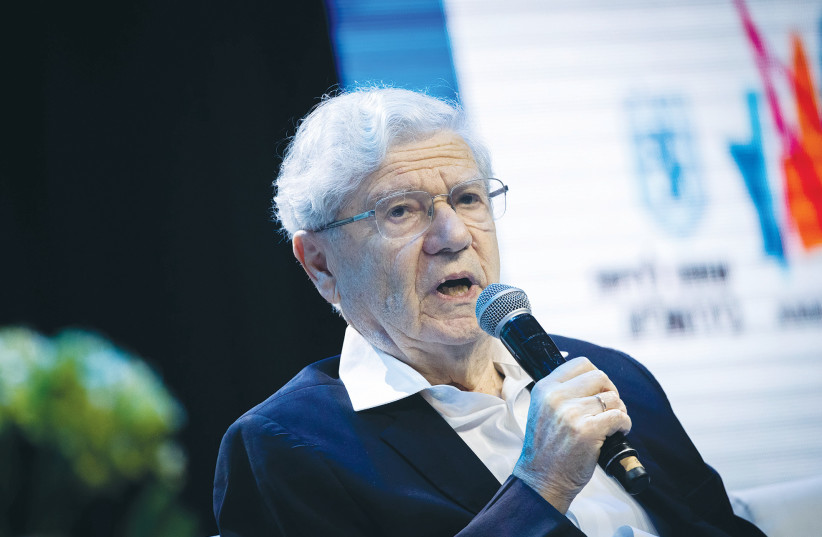The fact that the current Netanyahu-led government has named former Supreme Court president Aharon Barak as its addition to an International Court of Justice (ICJ) panel due to hear a genocide allegation against the Jewish state could be defined as a brilliant and unexpected move.
Barak, likely Israel’s most prominent jurist, served as president of the Supreme Court of Israel for a decade. In the past year, however, during the toxic arguments about the government’s planned judicial reforms, he was considered one of the most hated figures among half of the country’s Jewish population. Interestingly, Netanyahu had become the most hated person in Israeli society's center to center-left.
As president of the Supreme Court, Barak championed a judicial activist approach, empowering the court to engage in judicial legislation to fill legal gaps – a method that sparked considerable controversy and opposition.
This approach was at the heart of the recent conflict between liberal and conservative Israelis up until the day before the October 7 massacre, which caused Israelis to reunite moments before the heated situation could have gotten out of control.
Netanyahu not a fan of Barak

Netanyahu is no fan of Barak. Many of the prime minister’s supporters have been criticizing Barak for years. In August, Minister of Regional Cooperation Dudi Amsalem said, "Barak and [former IDF chief of staff Dan] Halutz should rot in jail for the rest of their lives." Television host and Netanyahu-confidant Yinon Magal claimed in March that Barak is "the most dangerous man in the State of Israel."
That said, this has been one of the only brilliant moves made by Netanyahu since the terrible Operation Swords of Iron was launched three months ago. Netanyahu is now reminding us of what an innovative, clever, and strategic leader he was.
There are several reasons why this move should be applauded: Firstly and most importantly, Netanyahu is signaling to Israelis that he understands the many mistakes his government has made over the past year, mainly by promoting judicial reform in a harsh and even violent way. He is signaling to Israelis who think very differently from him that he is putting the differences aside and focusing on the future of the State of Israel as a Jewish and democratic state.
Secondly, Barak survived the Holocaust, the largest genocide known in history.
Thirdly, the fact that he is considered to be a progressive legal expert and Israel’s most known former justice worldwide can assist Israel in trying to emphasize its complicated yet just case.
Communications Minister Shlomo Karhi related to this issue on Sunday. Barak “weakened the deterrent power of the IDF and thwarted targeted eliminations [as chief justice]. He made the fight against terrorism more difficult,” Karhi said in an interview with the Knesset Channel. “In my eyes, this is the brilliance of the prime minister, that a lawyer like Aharon Barak, who specifically made the war and Israel's fight against terror more difficult, also says that Israel abides by international law.”
That said, Barak will need to go the extra mile to prove that he represents all types of Israeli law attitudes, not just his doctrine. A few months ago, during an interview with journalist Roni Kuban on Israel’s public broadcaster Kan, Barak disclosed that though his life mission is for Israel to be a Jewish and democratic state, he doesn’t know a lot about Judaism. In the interview, he was asked about his relationship with Judaism and whether he was familiar with Jewish law, to which he emphasized his greater inclination towards democratic thought "because I am not sufficiently familiar with Jewish sources. I regret this. I would have preferred that our judges learn more about Judaism." At this point, when asked if he was familiar with Jewish law, he responded, "Very little."
"Talmud?" Kuban asked, to which Barak again replied, "Very little, and I regret this. “But not because I think that in the balance between Judaism and democracy, democracy should have more weight,” he added. “No, no, no. They are equal. Each of them is important."
This could be Barak’s and Netanyahu’s moment to unite Israel and turn what was a toxic ideological debate into a bridge between those who despise each other’s views. It could be a moment when Israelis unite around the fact that Israel has a right to defend itself and that the IDF truly is the most moral army in the world.
